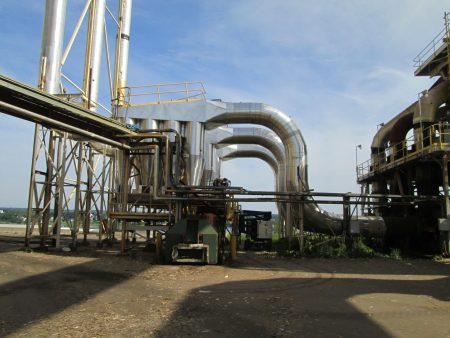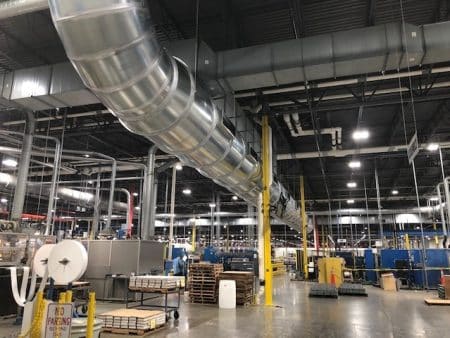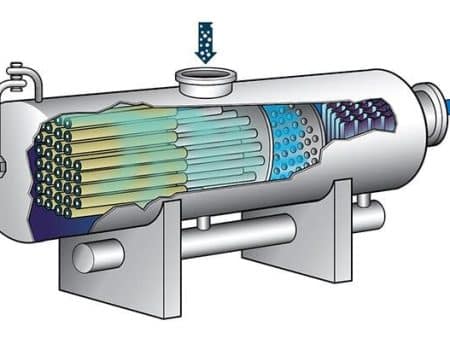Nitrogen oxides (NOx), a group of highly reactive gaseous compounds composed of nitrogen and oxygen, are significant air pollutants that pose a serious threat to environmental quality and human health. Primarily stemming from human activities, particularly the combustion of fossil fuels in vehicles, power plants, and industrial processes, NOx emissions contribute to a range of adverse effects, including respiratory problems, acid rain, and the formation of ground-level ozone.
Unveiling the Science Behind NOx Emissions
The formation of NOx occurs when nitrogen and oxygen react at high temperatures, typically found in combustion processes. During combustion, nitrogen in the air combines with oxygen, generating nitric oxide (NO), a primary component of NOx. NO can further react with oxygen in the atmosphere to form nitrogen dioxide (NO2), another major component of NOx.
The Environmental Impacts of NOx Emissions
The release of NOx emissions into the atmosphere has a cascade of detrimental impacts on the environment:
- Respiratory Problems: Exposure to NOx can irritate the respiratory system, causing coughing, wheezing, and difficulty breathing. Long-term exposure can worsen asthma, bronchitis, and other respiratory conditions, particularly in children and individuals with pre-existing respiratory conditions.
- Acid Rain: NOx plays a crucial role in the formation of acid rain, a phenomenon resulting from the interaction of NOx and sulfur dioxide (SO2) with water vapor in the atmosphere. Acid rain damages forests, lakes, and streams, altering ecosystems and harming aquatic life.
- Ground-Level Ozone: NOx undergoes complex chemical reactions with other pollutants, such as volatile organic compounds (VOCs), in the presence of sunlight to form ground-level ozone. This harmful pollutant damages vegetation, reduces crop yields, and can cause respiratory problems, including asthma attacks, chest pain, and coughing.
Strategies for Effectively Mitigating NOx Emissions
Tackling the issue of NOx emissions requires a multi-pronged approach, encompassing technological advancements, policy changes, and individual actions. Here are some of the most effective strategies for reducing NOx emissions:
- Transitioning to Cleaner Fuels: Replacing fossil fuels with cleaner alternatives, such as natural gas, renewable energy sources, such as solar, wind, and geothermal power, and electricity from zero-emission sources, can significantly reduce NOx emissions.
- Optimizing Combustion Efficiency: Enhancing combustion processes in vehicles, power plants, and industrial facilities can minimize NOx formation. This includes improving engine design, implementing advanced combustion technologies, and maintaining proper fuel-air mixtures.
- Adopting Advanced Emission Control Technologies: Installing advanced emission control technologies, such as selective catalytic reduction (SCR) and selective non-catalytic reduction (SNCR), can effectively capture and remove NOx from emissions. These technologies utilize catalysts or chemical reagents to convert NOx into harmless nitrogen and water vapor.
- Promoting Sustainable Transportation: Encouraging the use of public transportation, cycling, walking, and electric vehicles can reduce emissions from the transportation sector, one of the major sources of NOx pollution.
- Enacting Stricter Industrial Regulations: Implementing stricter regulations on industrial processes that contribute to NOx emissions, such as cement production and steel manufacturing, can help lower pollution levels.
- Raising Public Awareness: Educating the public about the sources, impacts, and mitigation strategies related to NOx emissions can foster informed decision-making and encourage individuals to adopt sustainable practices.
CECO Environmental: A Leader in NOx Reduction Solutions
CECO Environmental is a leading provider of environmental solutions with over 150 years of experience serving industrial applications across the globe. We possess extensive knowledge and first-hand experience working with NOx reduction technologies and are committed to developing and deploying solutions that are efficient, safe, and cost-effective. We believe that reducing NOx emissions is crucial for protecting our environment and ensuring public health.
Join us in our mission to reduce NOx emissions and create a cleaner, healthier environment for future generations. Contact CECO Environmental today to explore our range of NOx reduction solutions and how we can help you achieve your sustainability goals. Together, we can make a significant difference in mitigating NOx emissions and safeguarding the health of our planet.
Want to learn more? Here are some other resources on how to reduce NOx emissions:



